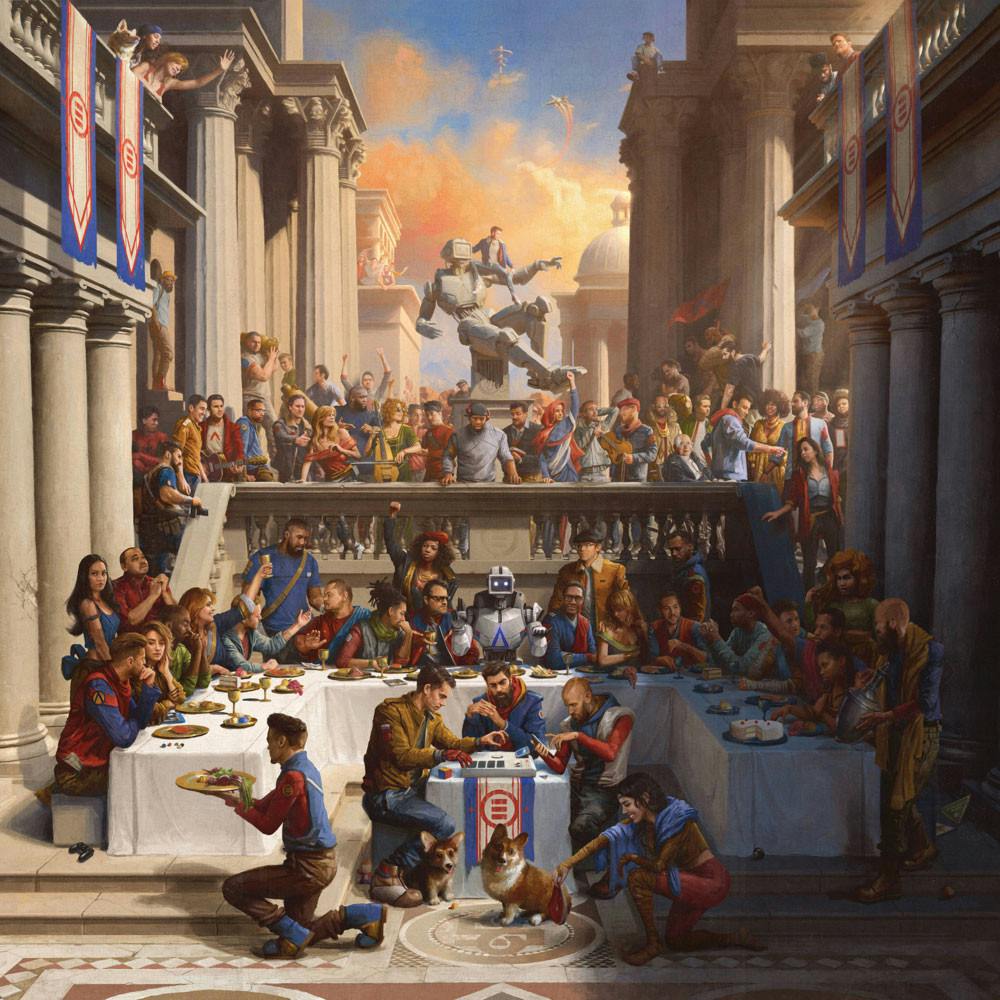Logic is an artist that came on the scene with his untouchable ability to freestyle. Logic isn’t just a viral, freestyling and record label backed artist. Logic is a rapper and his latest album, “Everybody,” has gained my respect and my support
On May 5, Sir Robert Bryson Hall, also known as Logic, released his third studio album, and it quickly rose to the number one album on the Billboard 200 chart.
This is his first number one album release. Logic successfully encompasses his past and present life into a great album.
Each aspect of his album is respectful, explanatory and are put into a form that could be understood by everyone. Music has always been looked at as a universal language, but Logic took that definition and ran with it.
This album is dedicated to the betterment of “Everybody.” Logic advocates for the support for those who are oppressed and a offers a call to action for those who have the power to incite change.
The album discusses themes such as social identity within the United States, the search for truth beyond our understanding [and] the support for equality movements across the United States.
Logic centralizes his album title around Andy Weir’s famed story “The Egg.” In this story a man is killed in a car accident and inevitably meets with a God like being. Through this meeting he learns that he is reincarnated every time he dies until he has lived as “Everybody.”
The point of the reincarnation is to gain wisdom, knowledge and empathy for every person in order to become like the God being the man is conversing with.
Among other important aspects of this story, what I found most compelling was the explanation of how every action you commit has some type of consequence that can affect one adversely or disparately. Everybody is connected in one way or another, hence the title.
In the song “Waiting Room” the God character said to the man, “You see Atom, every act of hatred and violence you committed against another, you were committing against yourself and every act of love and hand of kindness, you also extended unto yourself.”
From this, I received that every malicious act or thought ultimately affects you to some extent and the positive things you do have some effect as well.
Logic seeks to promote, as he mentioned in the album, “peace, love and positivity,” because through that stems unity and equality.
Logic is a biracial man who decided to defend his African American brothers against oppression. He discusses the reality of discrimination across the United States in songs such as “Take it Back” and “America.”
In “Take it Back,” Logic addresses the life threatening stereotypes that have been applied to the African American male. He sings: “Take it way way back to the first black man, long ago before the white man, could paint the black man with a gun in his hand.”
More social topics are addressed in “America.”Logic discusses the water crisis in Flint, Michigan, “Ain’t like Flint ain’t got clean water, Dirty politics never come clean.”
Through these songs Logic looks to hope to provide a solution to some recurring social issues.
Not all solutions are straightforward. Social issues are multifaceted and sometimes more than we can understand, but what we should continue to do is grow spiritually, mentally and physically.
Logic takes us on a journey through his life explaining hardship as well as how he overcame them. He wants to provide a face to a unified people.
We as a people should seek to learn, seek to understand, seek to help, seek help, listen. We are one people, in the words of Logic, we are “Everybody,” regardless of race, religion, creed or sexual orientation.
Logic addresses social issues that pertain to "Everybody"

Logic centralizes his album title around Andy Weirs famed story “The Egg.”



